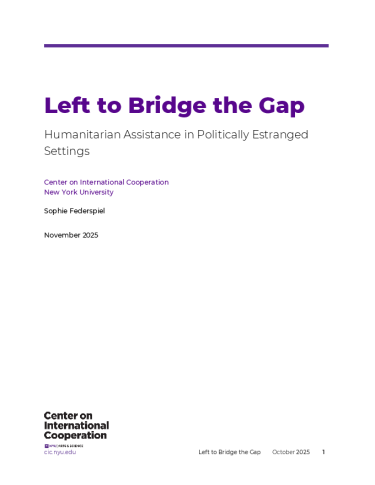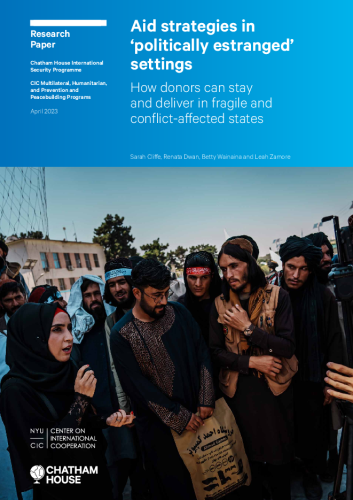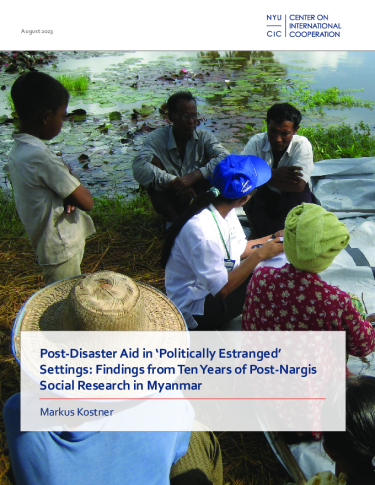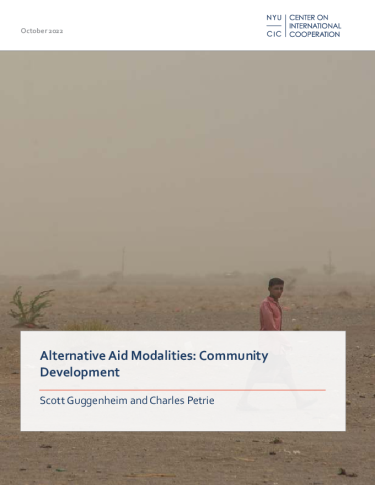This report explores the growing role of humanitarian actors in “politically estranged” settings—contexts where cooperation between national authorities and major international donors has broken down due to factors such as unconstitutional changes in government, comprehensive sanctions, or limited international recognition.
Countries such as Afghanistan, Mali, Myanmar, Syria, and others exemplify this trend. As outlined in this report, these environments are no longer rare exceptions but are becoming a more prominent feature of today’s humanitarian landscape.
Across many fragile and conflict-affected settings, development actors already face systemic challenges, including limited presence, inadequate funding, and insufficient capacity to operate at scale. These limitations are sharply exacerbated in politically estranged contexts, where formal development cooperation is often suspended altogether. In many of these settings, the suspension of development assistance and the limited presence of peacebuilding actors have left humanitarian organizations as the primary channel of international engagement. This has placed growing pressure on them to move beyond their core life-saving mandate, taking on roles in sustaining basic services, supporting local infrastructures, and strengthening community resilience amid protracted political disruption.
The report is broken down into three sections:
- Part 1: Pressures on the Humanitarian Ecosystem
- Part 2: Effective Humanitarian Modalities for Politically Estranged Settings
- Policy Recommendations and the Way Forward



